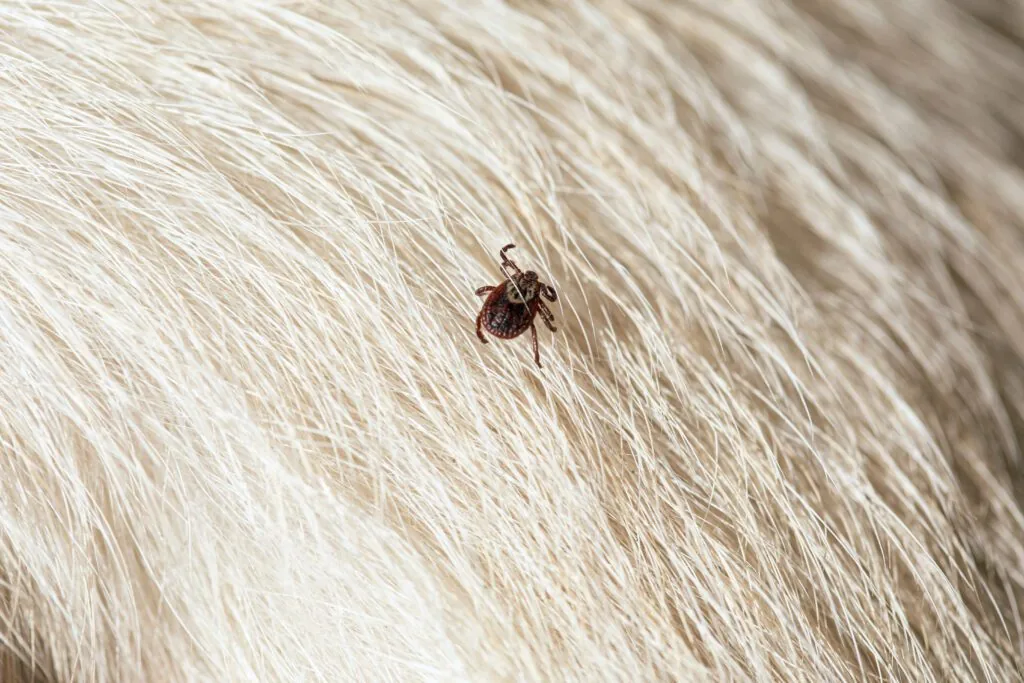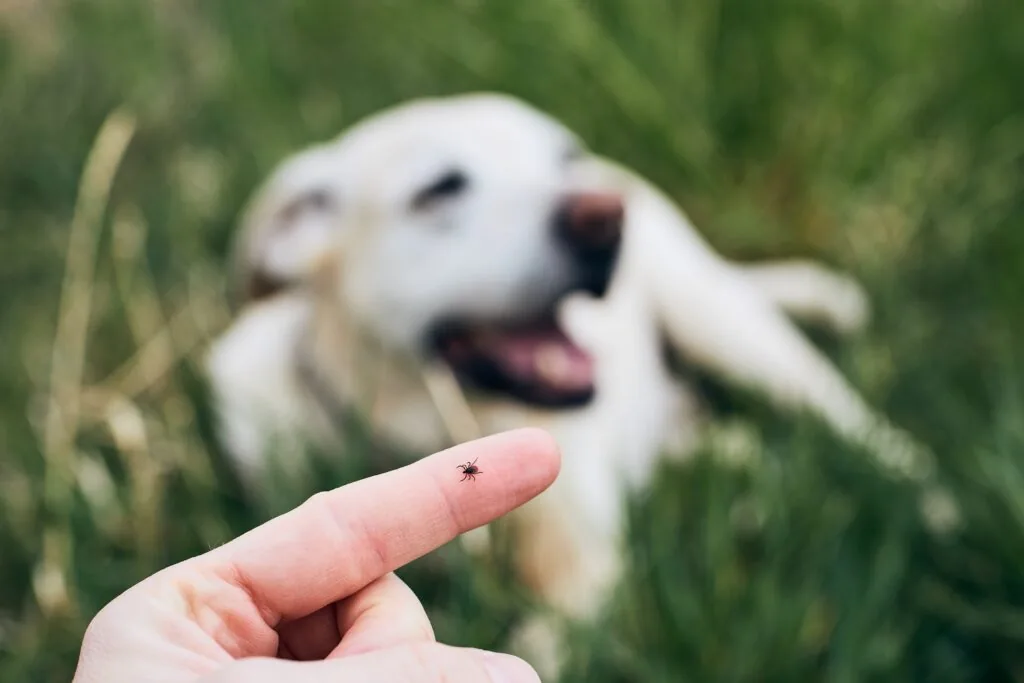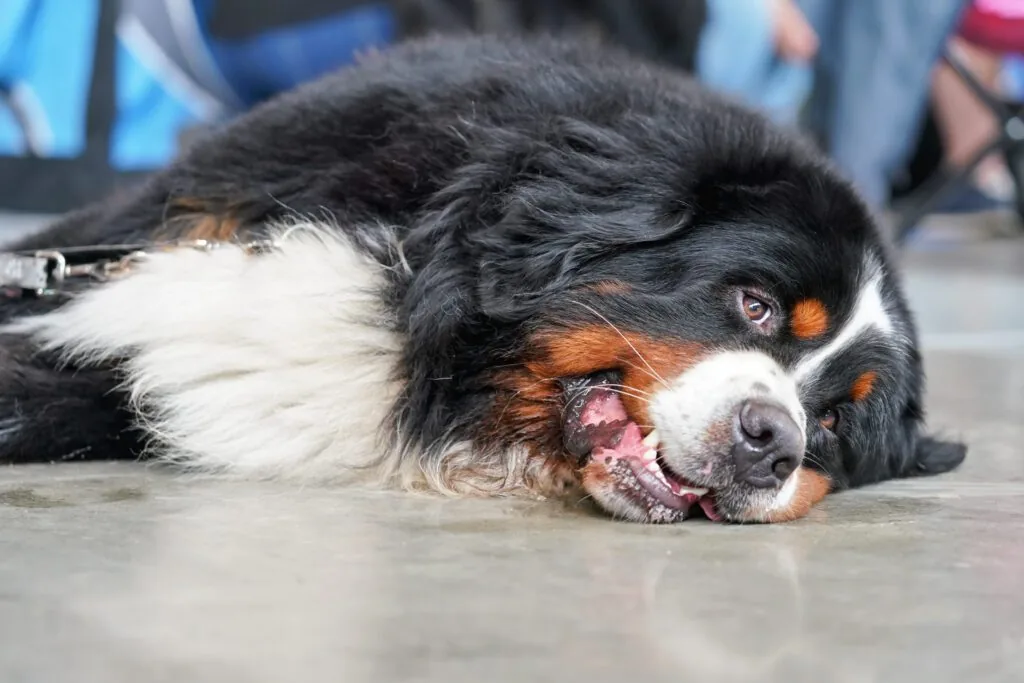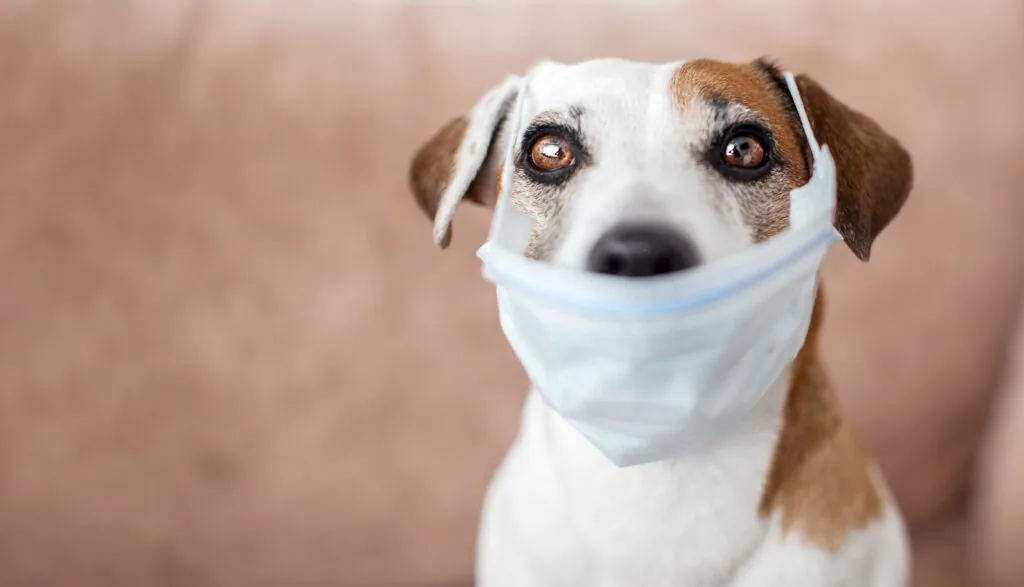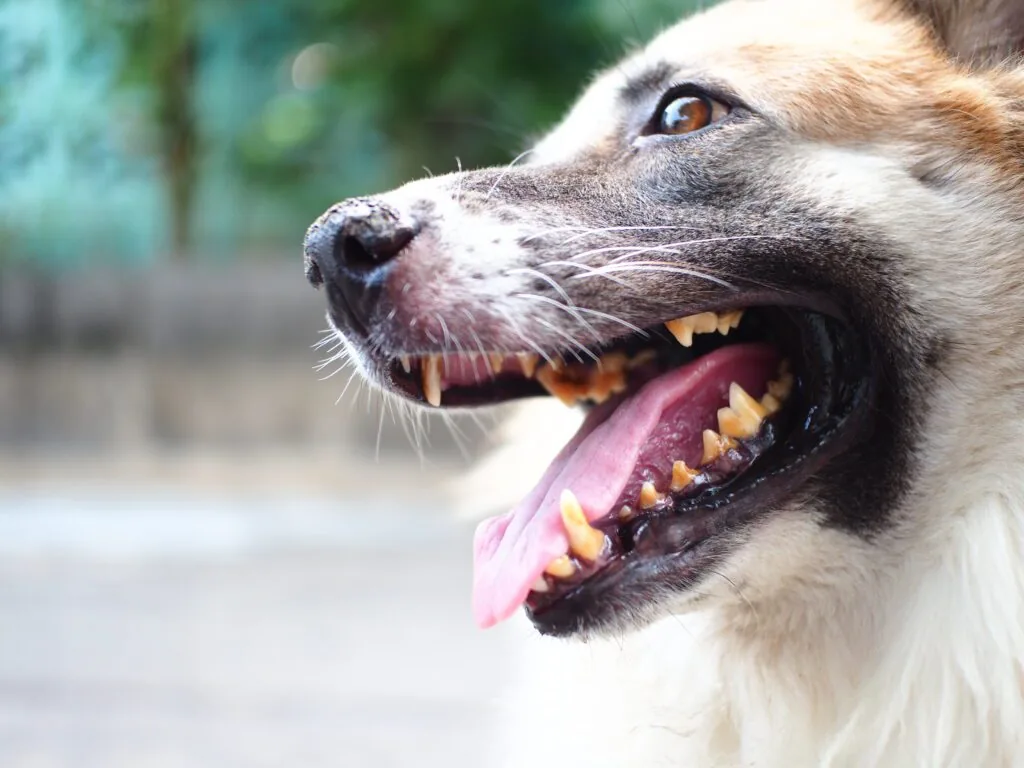Having a dog that seems to be sneezing all of the time can be concerning, especially if they are having full on sneezing fits. However, there are some times where sneezing is completely fine and times where sneezing can be a sign of a more serious medical problem in dogs.
Usually sneezing in dogs is caused by irritants and allergies. However, sometimes dogs are also known to sneeze when they are playing or communicating with their owners or other dogs. In addition, sometimes sneezing in dogs can be a sign of a more serious medical concern such as Brachycephalic Airway Syndrome.
In this article we will be explaining everything that dog owners need to know about their dogs sneezing. We will be listing some of the most common causes for sneezing in dogs, and we will be letting you know when you should see a veterinarian about your dog’s sneezing as well.
Something is Irritating Your Dog’s Nose
Have you ever sneezed because something was tickling your nose? Well, this can happen in dogs too. Usually this happens because they have something like a small piece of lint or a bug fly up their nose, but other things can cause minor nose irritation in dogs as well. This is usually nothing that dog owners need to worry too much about, and the sneezing should stop once the thing irritating your dog’s nose goes away.
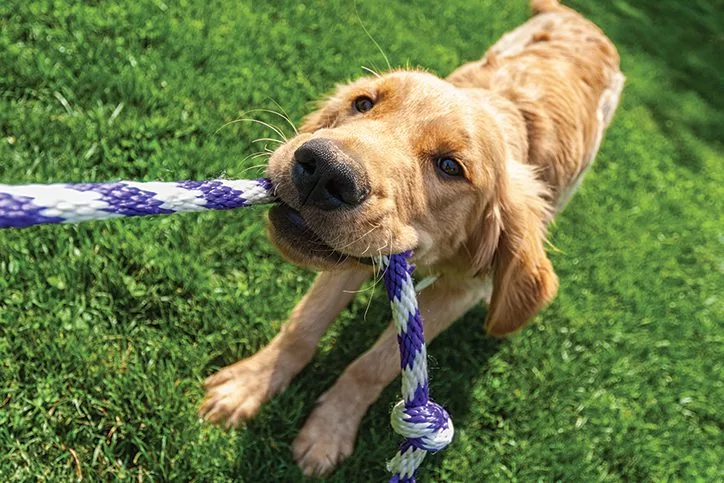
They are “Play Sneezing”
Although it may seem strange, sometimes dogs sneeze as a way to communicate with both people and other dogs. In fact, dogs often do this when they are excited and feeling playful, so if your dog seems to start sneezing around playtime this may just be the cause. Play sneezing is nothing that dog owners need to worry about, and it is a completely normal and natural behavior in dogs. However, you may still want to take your dog to the vet to rule out any medical causes for your dog’s sneezing.
They Have Allergies
Like in people, allergies can cause your dogs to sneeze. Dogs can actually be allergic to a wide variety of things, and many of these allergies can cause sneezing along with a few other symptoms as well. Some other common symptoms of allergies in dogs include but may not be limited to:
- Runny and itchy eyes
- Itchy skin (especially around the face, ears, belly, and groin)
- Swelling around the face and ears
- Red and inflamed skin or the development of hives
- Vomiting and diarrhea
- Ear infections
- Excessive grooming (especially around affected areas)
Although having a dog with allergies can be stressful, it is a very treatable condition. It is recommended that you see a vet about your dog’s allergies in order to receive proper and effective treatment for their conditions. You may need to make a few lifestyle changes as well such as purchasing laundry detergent for sensitive skin or getting rid of specific plants.
There is Something Up Your Dog’s Nose
Sometimes dogs also sneeze because they have something that is stuck up their nose. Sneezing is a natural response to this because it is the body’s way of trying to get something out of the nose naturally. However, this natural response isn’t always successful with removing things from dogs’ noses, especially if it is really lodged up there.
If your dog won’t stop sneezing and you suspect that they have something stuck up their nose then it is recommended that you take them to a veterinarian immediately. A vet will be able to remove the object either with tweezers or with some water. Your dog may need to go under anesthesia during these procedures to prevent them from making the situation worse by moving around too much. It also prevents them from feeling any pain while the object is being removed.
They Are From a Brachycephalic Breed
Some dog breeds are genetically predisposed to developing a condition called Brachycephalic Airway Syndrome. This condition causes the dog to have abnormal development of the structures in the upper respiratory system, and this syndrome can range in severity. Some Brachycephalic breeds that are at risk of developing this condition include but may not be limited to:
- Pugs
- French Bulldogs
- English Bulldogs
- Boxers
- Boston Terriers
- Shih Tzus
- Bull Mastiffs
- Pekingese
- Lhasa Apsos
Although sneezing is not necessarily the most common sign of BAS in dogs, dogs with this condition are more likely to experience nose and breathing irritation that can cause them to sneeze more often than dogs without the syndrome. If your dog keeps sneezing and is from a Brachycephalic breed then it is recommended that you take them to a vet to be evaluated as soon as possible.
Your Dog Could be Sick
Many upper respiratory diseases can cause excessive sneezing in dogs. However, a lot of times dogs will also exhibit other symptoms as well such as coughing, nasal discharge, and lethargy. If you think that your dog may have caught some kind of illness then you should take them to the vet. Here they will be able to diagnose your dog and prescribe them medication that will either help clear up the infection or reduce their symptoms.
Your Dog Could Have Dental Disease
Many people may be surprised to find that dental disease can cause excessive sneezing in dogs, but it is true. Usually a dog that is sneezing because they have dental disease will often have very bad breath and sometimes even have bleeding or pussy gums. It is recommended that you take your dog to be evaluated by a vet as soon as possible if you believe that they may have dental disease.
Something Could be Obstructing Your Dog’s Nose
Sometimes things like tumors or polyps can form in a dog’s nose and lead to obstruction, and this will usually cause the dog to sneeze excessively. It is always recommended that you take your dog to the vet immediately if you see blood come out of your dog’s nose when he sneezes. This is because when this happens polyps or a tumor in a dog’s nose is usually the cause.
In Conclusion
These are only a few reasons that could cause a dog’s sneezing in White Bear Lake, MN. To talk with a vet about your dog call Birch Lake Animal Hospital at (651) 426-2246 or book an appointment online!
Recent Posts
About Birch Lake Animal Hospital
The staff at Birch Lake Animal Hospital seeks to provide the best possible medical care for our highly-valued patients and clients.

